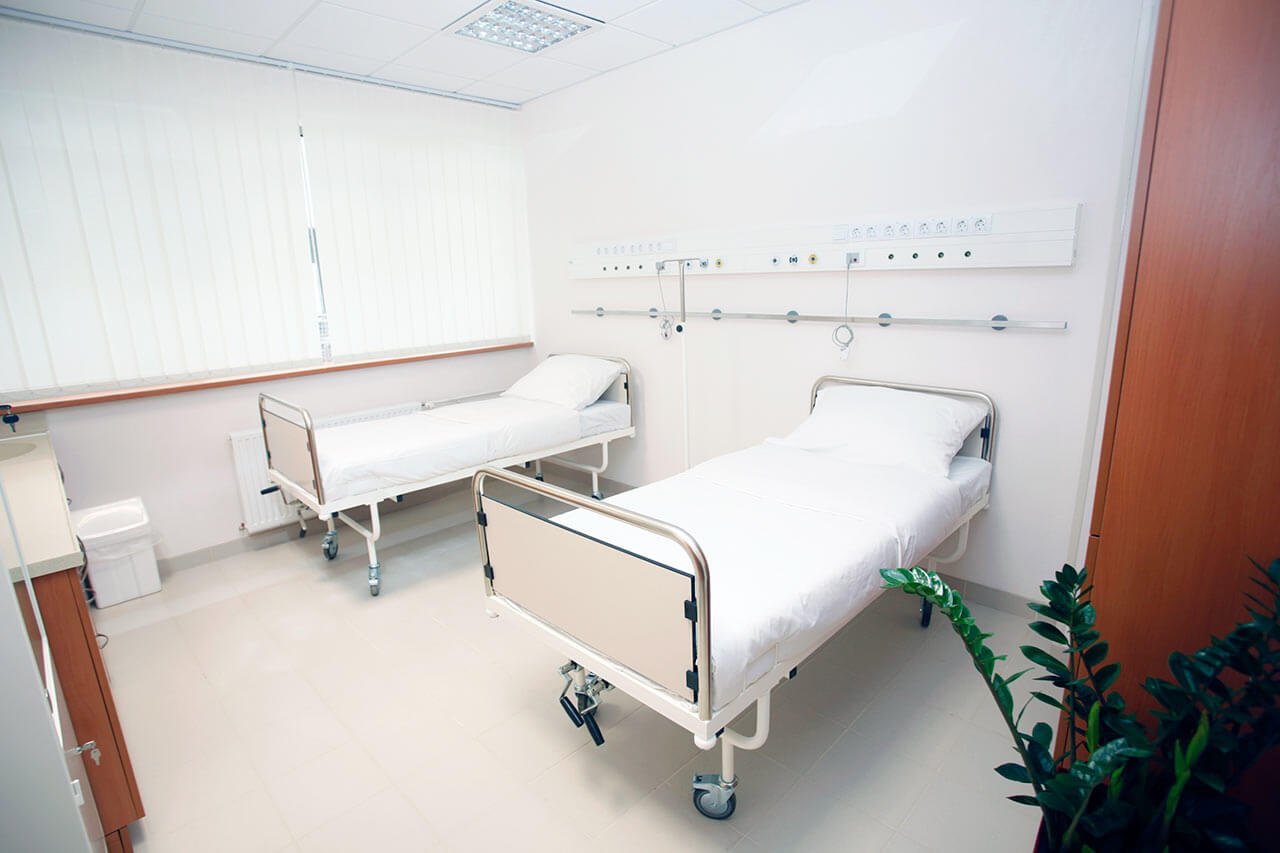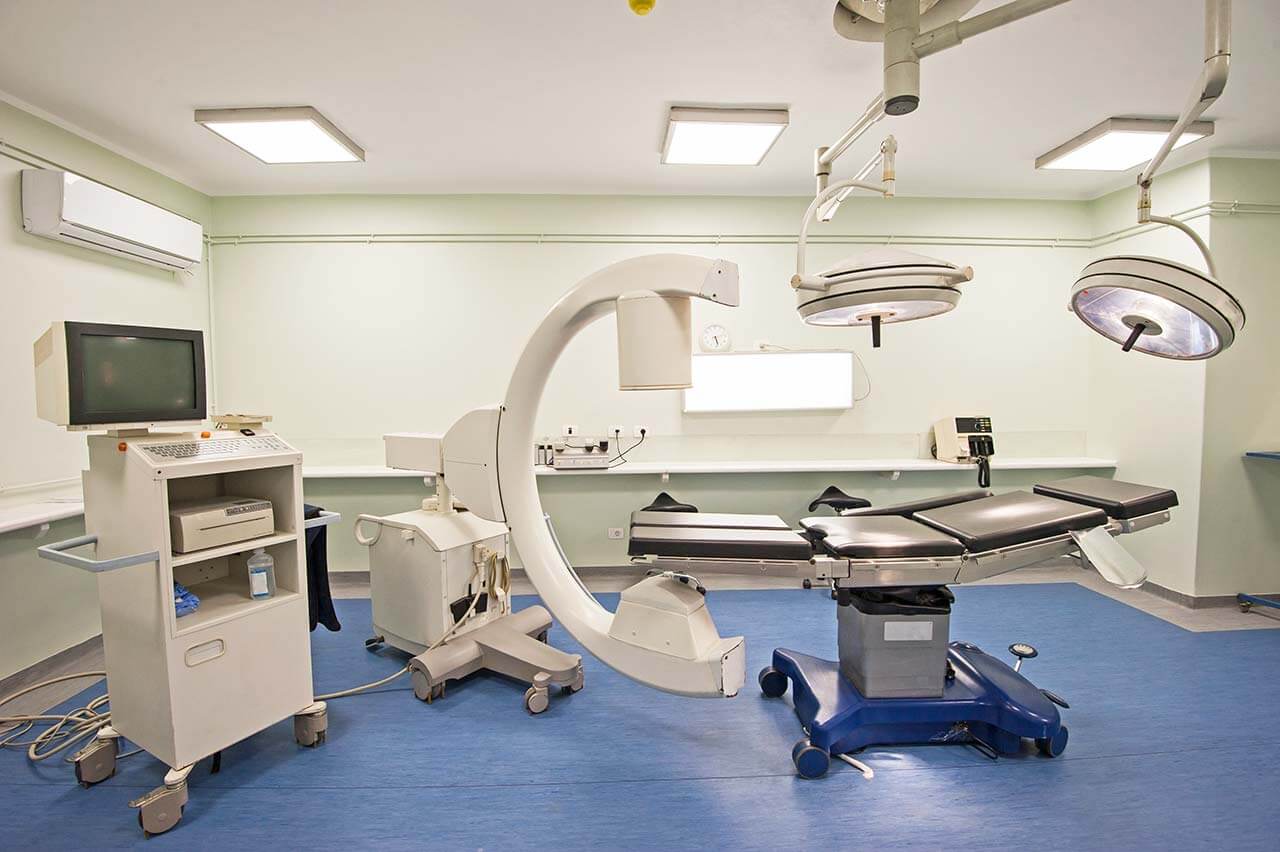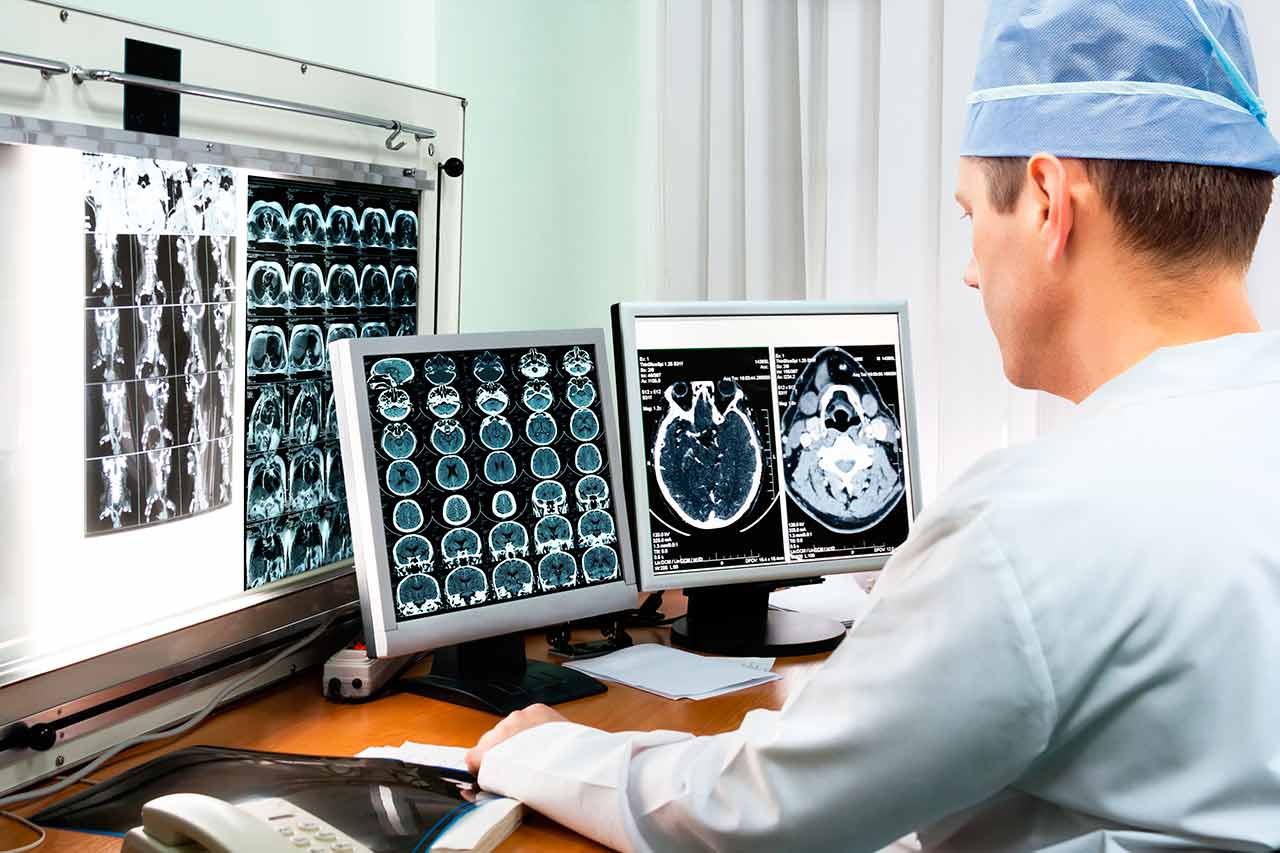
The program includes:
- Initial presentation in the clinic
- clinical history taking
- review of medical records
- physical examination
- laboratory tests:
- general blood analysis
- lipid metabolism
- carbohydrate metabolism
- mineral metabolism
- protein electrophoresis
- immune stasus
- immunofluorescence assay (IFA)
(total Lyme titer or IgG and IgM titers) - enzyme immunoassay (EIA)
- PCR detection
- inflammation indicators
- indicators blood coagulation
- joint aspiration- to exclude other causes of
effusion (eg, septic arthritis, gout, pseudogout) - CSF analysis - In patients with meningitis
- ECG - to identify Lyme carditis
- symptomatic specific treatment
- the cost of essential medicines and materials
- nursing services
- control examinations
- full hospital accommodation
- developing of further guidance
Required documents
- Medical records
Service
You may also book:
 BookingHealth Price from:
BookingHealth Price from:
About the department
The Department of General Internal Medicine, Nephrology, Hypertensiology and Rheumatology at the University Hospital Muenster offers the full range of diagnostic and therapeutic services for the patients with kidney diseases, arterial hypertension and rheumatic pathologies. The department is headed by Prof. Dr. med. Hermann-Joseph Pavenstädt.
The department has in its arsenal all the modern types of renal replacement therapy. In collaboration with the Department of General and Abdominal Surgery, it provides a comprehensive care for patients before and after kidney transplantation. With an annual number of more than 100 kidney transplantations, the department ranks among the most successful and experienced medical facilities in this field. The department treats more than 2,000 inpatients, 8,000 outpatients, as well as 13,500 patients with emergency medical conditions annually.
The department's priority is the provision of the diagnostics and treatment of the highest quality in a friendly atmosphere for each patient. The team of the department's doctors works in accordance with the international scientifically confirmed achievements and the very latest recommendations. In addition, an important role is given to a good emotional mood of patients.
The department’s clinical focuses include:
- Diagnostics and treatment of general diseases
- Diagnostics and treatment of acquired types of immunodeficiency (HIV infection, AIDS and HIV-related diseases)
- Prevention, diagnostics and treatment of hypertension
- Diagnostics and treatment of Fabry disease
- Diagnostics and treatment of lipid metabolism disorders
- Diagnostics and treatment of all kidney diseases (for example, glomerulonephritis, diabetic nephropathy)
- All types of renal replacement therapy
- Peritoneal dialysis (continuous ambulatory peritoneal dialysis, automated peritoneal dialysis using a cycler (APD, IPD, NIPD, TPD))
- Hemodialysis
- Hemodiafiltration
- Hemofiltration
- Plasmapheresis
- Immunoadsorption
- MARS therapy
- Patient care before and after kidney transplantation
- Diagnostics and treatment of rheumatic diseases (for example, rheumatoid arthritis, ankylosing spondylitis, systemic lupus erythematosus, Wegener's granulomatosis)
- Diagnostics and treatment of emergency medical conditions
- Other medical services
Curriculum vitae
University Education
- 1979 - 1986 Study of Medicine at the Universities of Regensburg and Freiburg, interrupted by alternative service in the St. Augustin nursing home for the elderly.
Doctoral Degree
- 1988 Thesis subject: "Investigation of intracellular antigens in lymphocyte and macrophage subpopulations of bronchoalveolar lavage".
Professional Career
- 01.02.1987 - 31.03.1987 Research Associate at the University Hospital Freiburg, Department of Internal Medicine IV (Head: Prof. Dr. med. P. Schollmeyer).
- 01.04.1987 - 30.06.1989 Research Associate at the Institute of Physiology in Freiburg (Head: Prof. Dr. med. R. Greger).
- 01.07.1989 - 31.07.1995 Assistant Physician in the Department of Internal Medicine IV at the University Hospital Freiburg.
- 09.1994 Habilitation in Internal Medicine. Subject "On the regulation of ion channels on glomerular mesangial and epithelial cells".
- 07.1994 Board certification Internal Medicine.
- 08.1995 Appointment as Senior Physician (C2).
- 09.1996 Subspecialization in Nephrology.
- 09.2000 Franz Volhard Prize.
- 12.2000 Invitation to the position of C3 Professor of Nephrology and Molecular Biology at the Ludwig Maximilian University of Munich.
- 05.2001 C3 Professor of Internal Medicine at the University Hospital Freiburg, Department of Nephrology and Internal Medicine (Head: Prof. Dr. G. Walz).
- Since 08.2003 C4 Professor, Head of the Department of General Internal Medicine, Nephrology, Hypertensiology and Rheumatology at the University Hospital Muenster.
- 03.2007 Deputy Medical Director of the University Hospital Muenster.
- 05.2008 Board Member of the University Hospital Muenster.
Photo of the doctor: (c) Universitätsklinikum Münster
About hospital
According to the Focus magazine, the University Hospital Muenster ranks among the top German hospitals!
The hospital belongs to the most prestigious medical institutions in Germany. The hospital is distinguished by a high professionalism of its doctors, state-of-the-art technological equipment and the availability of the most advanced diagnostic and therapeutic capabilities ensuring the first-class medical services. The hospital integrates more than 30 specialized departments, as well as numerous institutes and centers, thus representing all the specialties of modern medicine. The hospital treats more than 64,000 inpatients and 500,000 outpatients every year, which is an indisputable evidence of the highest quality of medical services.
The medical team of the hospital, consisting of more than 10,000 employers, is committed to preserving the physical health of patients, providing them with psychological support and compassionate attitude throughout the entire therapeutic process.
The hospital has succeeded in all specialties of medicine, however, main areas of its specialization include oncology, treatment of cardiovascular, neurological diseases, transplant medicine, psychiatry and psychosomatics, pediatrics with a special focus on rare diseases in children, traumatology, orthopedics, prenatal medicine, and reproductive medicine. In addition, key importance is given to scientific research and training of medical students, so that the specialists of the hospital make a momentous contribution to the development of medicine as a whole.
Photo: (с) depositphotos
Accommodation in hospital
Patients rooms
The patients of the University Hospital Muenster live in single or double rooms. The rooms are made in bright colors and modern design. Each room has an ensuite bathroom with shower and toilet. The standard room includes an automatically adjustable bed, a bedside table, a table and chairs for receiving visitors, a telephone and a TV. The hospital offers access to the Internet. If desired, the patient can also stay in the enhanced-comfort room.
Meals and Menus
The patients of the hospital are offered a tasty and balanced three meals a day: breakfast, lunch and dinner. The menu always features diet and vegetarian dishes. If for any reason you do not eat all the food, you will be provided with an individual menu. Please inform the medical staff about your dietary preferences prior to the treatment.
Further details
Standard rooms include:
Religion
Religious services are available upon request.
Accompanying person
During the inpatient program, an accompanying person may stay with you in a room or at the hotel of your choice.
Hotel
During the outpatient program, you can live at a hotel of your choice. Managers will help you to choose the most suitable options.
The hospital offers a full range of laboratory tests (general, hormonal, tests for infections, antibodies, tumor markers, etc.), genetic tests, various modifications of ultrasound scans, CT scans, MRI and PET / CT, angiography, myelography, biopsy and other examinations. Treatment with medications, endoscopic and robotic operations, stereotaxic interventions is carried out here, modern types of radiation therapy are also used. The hospital offers patients all the necessary therapeutic techniques.
- Stereotactic radiotherapy, including intracranial one
- Thulium and holmium laser enucleation of the prostate
- HIPEC for peritoneal cancer
- Imlantation of mechanical heart support systems
- Assisted reproductive technologies
These are arthrosis and sports injuries of the joints, benign neoplasms and malignant tumors of various localizations, spinal injuries, osteoporosis, benign prostatic hyperplasia, urolithiasis, inflammatory bowel disease and other pathologies.
- Traumatology and hand surgery
- Urology
- General and abdominal surgery
- Cardiology and cardiac surgery
- Obstetrics and gynecology
The hospital's team consists of more than 10,000 highly qualified employees.






